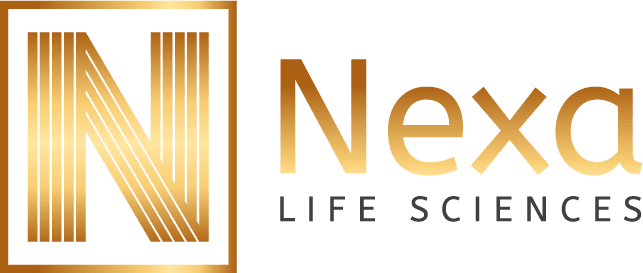Nexa’s Interview Preparation Guide
You have spent hours perfecting your CV, your LinkedIn is fully up to date, you nailed the application process and get the call that you have been requested for an interview for your dream role. Amazing news! And then suddenly amidst the excitement you realise you actually need to do an interview. Eeek! Before you start panicking you realise you have time and all you need is good preparation. Luckily you remember Nexa Life Sciences has an online guide to interviewing within the Life Sciences sector!
It is highly competitive in the life sciences market, more so than ever at present and the demand for the understanding of scientific principles, regulatory frameworks and industry trends is more prevalent than ever. When preparing for an interview taking a strategic approach, showcasing your knowledge, skills and passion for the industry is advantageous. In this guide we will share tried and tested techniques, tips and preparation questions to help boost you chances of beating the competition and landing that dream role!
Plan Ahead
Preparation is the key to success and will help you feel more confident and at ease during the interview. Setting simple tasks for yourself such as, what you will be wearing, where in the home you will be conducting the interview or familiarising yourself with the location or how you will introduce yourself.
Practising interview scenarios in your head and introductory questions for example “Tell me about you” & “Why are you interested in this role?” will help you set the scene and will ensure you have targeted responses ready that are highlighting your key strengths.
When planning for an interview it is important to refer to your CV. Your CV was your golden ticket to landing the interview and when preparing you should refer to your CV to see what you can use to your advantage.
It is most likely within the Life Science industry to have a minimum of a 2 stage interview process. 1st stage interview may be more heavily focused on your experience and competency-based questions, with the second stage interview being more aligned to asking technical based questions and could (dependent on experience level) involve a presentation, task/ assessment and be conducted by a panel. When planning for competency-based interviews, prepare for questions that are more specific. This may include answering in-depth questions based on your current/past experiences for example.
- What accomplishment in your career are you most proud of?
- How have your contributed to the success of the business?
- Give me an example of a time in which you have handled a difficult conversation with a manager or colleague?
Reverting to the STAR method when answering questions about your skills can help. The STAR method is a powerful interview technique that helps you to structure your responses and effectively communicate your experiences. It stands for:
- Situation: Describe the specific situation or challenge you faced.
- Task: Explain the task or goal you were responsible for achieving.
- Action: Detail the steps you took to address the situation or accomplish the task.
- Result: Highlight the positive outcome or achievements resulting from your actions.
Know You!
Yes, it may sound silly however a key step in interview preparation is knowing yourself. It is important to have familiarised yourself with your CV and all key accomplishments you have listed. Your CV may be something you have continued to add to over your career, however it could be that you have forgotten you mentioned that you enjoy horseback riding, and this is a question that is brought up by an interviewer as an icebreaker 😉! Interviewers will be keen to probe you on your key achievements and how you may have handled difficult situations. Have accurate and real-life scenarios in your mind prior to your interview.
Dress to Impress
First impressions matter. Your appearance is often the first thing an interviewer will notice. Being well dressed creates a positive and professional impression. When planning your outfit for the interview, it’s essential to dress comfortably and authentically. Choose an outfit that reflects your personal style and makes you feel confident. Reverting back to your preparation, getting your outfit sorted ahead of time can give you peace of mind and allow you to spend more time on other aspects of interview preparation.
If you unsure at how formal to dress, ask! Speak to your recruiter or hiring manager. They will be able to provide advice on suitable attire.
Sitting in a similar category to your outfit is punctuality. There is nothing more stressful than when Google Maps, doesn’t take you to the correct address or your laptop requires a full restart and shutdown a minute before the interview. Give yourself TIME! Whether that be a virtual or Face to Face interview punctuality is critical.
If interviewing Face to Face, ensure you have confirmed the correct address (companies may have multiple sites and entrances), if there is parking, what are the local transport links and who to ask for at reception? It’s worth keeping in mind that some pharmaceutical companies can be based on large sites and campuses in which you may have to go through security or sign in which can take extra time and is worth adding to your travel allowance.
If you do happen to be running late let sure to contact your recruiter or hiring manager in advance.
Be Curious
Did you know that only 70% of candidates research the company before an interview, however over 82% of candidates are asked what they know about the business they are interviewing for!
Being curious about a company you’re interviewing for demonstrates your engagement and interest in the role. It shows that you’ve done your research, that you are genuinely interested in the company’s mission and values and are eager to contribute to its success. It’s important to show you’ve taken the time to understand the company’s culture and values, making you a better potential fit. Researching a business also provides an opportunity to connect and ask insightful questions and also make sure it is aligned your own personal values.
Ways in which you can research an organisation prior to an interview include.
- Website
- A company’s website will give you a comprehensive understanding of the companies mission, values and history. On their website you will also be able to identity their products, services and accomplishments and gather information on recent company announcements, achievements and challenges. A company’s website will give you a great sense of the companies culture and work environment.
- LinkedIn/ Social Media
- It is highly likely a Life Science business with have a social media presence. This allows them to connect with customers and suppliers, demonstrate expertise in the field and increase awareness of their products and services. This will again be a vital tool in understanding about recent projects, clinical developments, achievements and company news.
- New articles/press releases
- Press releases and new articles will give you an insight into how a company is positioned with the market. When looking into recent news you will be able to access the company’s financial performance, growth and market share. Other information to look out for includes upcoming product launches, recent discoveries, and any recent or upcoming mergers/acquisitions.
- Competitors
- It is always beneficial to understand the competitive landscape and the company’s unique selling points. A simple “who are X competitors” on a search engine will allow you to benchmark performance and strategies and potential challenges in the industry.
- Research the Hiring Manager/ Interview Panel
- There is no better way of understanding an organisation than learning about your hiring manager and/or interview panel’s experience, expertise and career trajectory. Understanding relevant information about them from either your recruiter, HR team or looking them up on LinkedIn will allow you to find out more about their current role, accomplishments and whether you potentially went to the same Uni. Understanding their background and role will allow you to anticipate questions the hiring manager might ask. You will also gain greater alignment if your skills and experience align with the hiring manager’s priorities and goals.
Be prepared to Talk about YOU
When in an interview it can be easy to slip into the “when we did” or “the team and I” rather than reverting the answer back to you! Talking about yourself can be uncomfortable and sometimes feels un-natural. Being comfortable talking about yourself shows confidence and self-awareness, both important qualities for any job. Being able to express yourself well can help you build rapport with the interviewer and create a positive impression. Speaking confidently about your achievements and experiences, demonstrates you believe in your abilities and can handle the challenges that may arise within the role.
It can sometimes be weeks or maybe even months since you made that initial application and read the job description and requirements. Read the job requirements again, familiarise yourself with the specifications and write down a response to each point, highlighting how you match what the company are looking for.
Of course it is important to discuss your role within a team, key projects you have been apart of, but remember to revert to your experience, how you overcame challenges, how you manage your time effectively and prioritise your day! You are impressive, let the interviewers see that through the way you tell your story! Using the STAR method as mentioned earlier can help you articulate your responses.
Try and not be negative about a current or past employer, company culture or working conditions as this can give off a negative impression. Instead show that you are flexible and willing to take on responsibility.
Below are some common interview questions you may be asked in a competency -based interview.
- Tell me about a time when you faced a challenging scientific problem and how you overcame it?
- How do you stay updated with the latest advancements in the life sciences industry?
- Describe a project you’ve worked on that had a significant impact?
- What are your career goals?
- How do you stay motivated and passionate about your work?
- What are your key strengths?
- What excites you about this role?
- Provide an example of a successful collaboration you have been involved with?
- What type of work culture do you see yourself succeeding in?
Feeling nervous before an interview is completely normal and I know you would just laugh at me if I told you to relax. So instead, I will tell you to take your time throughout the interview. Take the time to deliver your answers and the information you have prepared. Interviews are conversations not interrogations, and taking those extra few seconds to formulate your answers is completely ok! If you are unsure of what is being asked, there is nothing wrong with asking for the question to be repeated or rephrased.
Preparing your Own Questions
It can sometimes feel like an interview is only a one-way street, but actually it’s very much a two way road and the perfect opportunity for you to ask questions! Accepting a new job is huge, and as much as the hiring manager needs to know you are the perfect fit, you need to know if they also match your career goals and aspirations.
Don’t underestimate the importance of asking questions during an interview. Asking questions in an interview demonstrates your genuine interest, emotional intelligence, initiative and even problem-solving skills.
In most cases as you near the end of an interview you will be asked – “Do you have any questions?”. Top tips – always have at least one or two prepared! Even if all your questions have been answered throughout the interview you could always asked about the next stage, the onboarding process, if successful what will my first few weeks will look like, what challenges do you think I might face in my first month, what are the opportunities for personal development and training?
There is no better feeling than coming out of an interview having any questions or queries clarified and answered.
Another top tip is asking the interviewer if there are any answers you have given that they would like reclarified or more information on.
Ending the Interview
It is as important to end your interview on a strong note as it is to make that good first impression. Don’t leave the interview in a rush. Take the time to say your thank you’s and say goodbye properly.
This is the perfect opportunity to ask any final questions and present a strong closing statement, demonstrating your interest and thanking the hiring manager for their time and consideration. Manners cost nothing and will leave a good lasting impression.
Feedback
Whether you receive a job offer or not, take a moment to reflect on the experience. If you don’t get the job, view it as an opportunity for growth. Use any feedback you receive to improve your interview skills for future applications. Always express gratitude to the interviewers, as you never know what future opportunities may arise within the company.
If you do land the job, congratulations! Embrace the challenge and make a positive impact in your new role.




